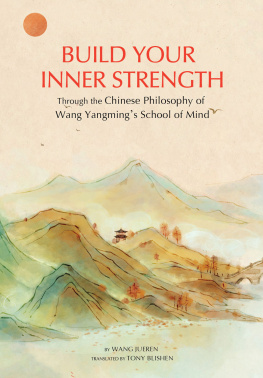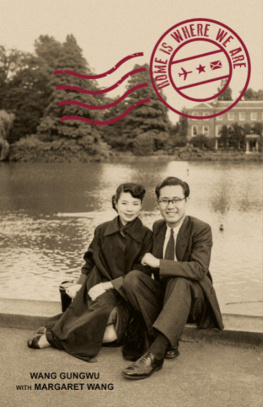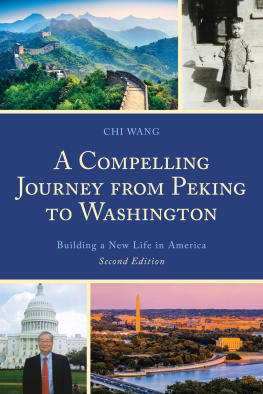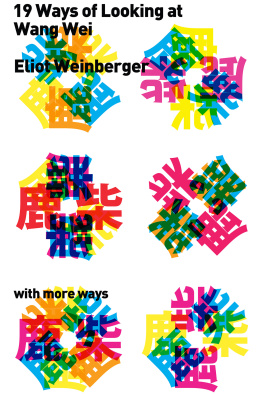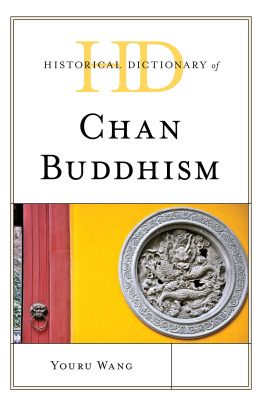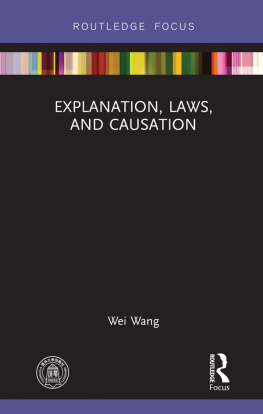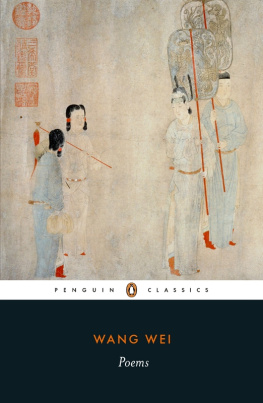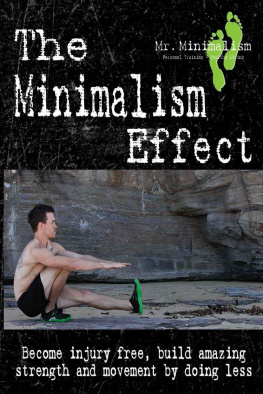Wang Jueren - Build Your Inner Strength
Here you can read online Wang Jueren - Build Your Inner Strength full text of the book (entire story) in english for free. Download pdf and epub, get meaning, cover and reviews about this ebook. year: 2022, publisher: Shanghai Press, genre: Science. Description of the work, (preface) as well as reviews are available. Best literature library LitArk.com created for fans of good reading and offers a wide selection of genres:
Romance novel
Science fiction
Adventure
Detective
Science
History
Home and family
Prose
Art
Politics
Computer
Non-fiction
Religion
Business
Children
Humor
Choose a favorite category and find really read worthwhile books. Enjoy immersion in the world of imagination, feel the emotions of the characters or learn something new for yourself, make an fascinating discovery.
- Book:Build Your Inner Strength
- Author:
- Publisher:Shanghai Press
- Genre:
- Year:2022
- Rating:5 / 5
- Favourites:Add to favourites
- Your mark:
- 100
- 1
- 2
- 3
- 4
- 5
Build Your Inner Strength: summary, description and annotation
We offer to read an annotation, description, summary or preface (depends on what the author of the book "Build Your Inner Strength" wrote himself). If you haven't found the necessary information about the book — write in the comments, we will try to find it.
Build Your Inner Strength — read online for free the complete book (whole text) full work
Below is the text of the book, divided by pages. System saving the place of the last page read, allows you to conveniently read the book "Build Your Inner Strength" online for free, without having to search again every time where you left off. Put a bookmark, and you can go to the page where you finished reading at any time.
Font size:
Interval:
Bookmark:
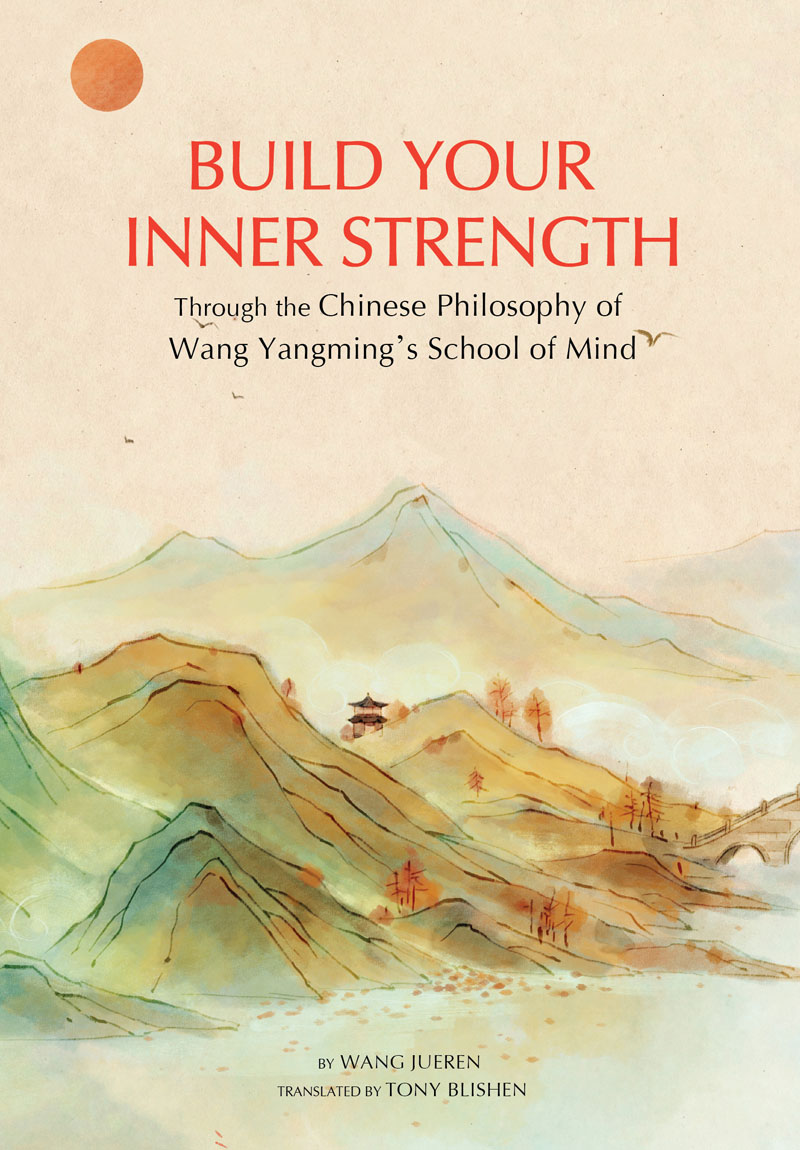

Copyright 2022 by Shanghai Press and Publishing Development Co., Ltd.
All rights reserved. Unauthorized reproduction, in any manner, is prohibited.
This book is edited and designed by the Editorial Committee of Cultural China series.
Text by Wang Jueren
Translation by Tony Blishen
Design by Wang Wei
Cover Photo by Getty Images
Copy Editor: Diane Davies
Editor: Wu Yuezhou
Editorial Director: Zhang Yicong
ISBN: 978-1-93836-861-5
Address any comments about Building Inner Strength to:
SCPG
401 Broadway, Ste. 1000
New York, NY 10013
USA
or
Shanghai Press and Publishing Development Co., Ltd.
390 Fuzhou Road, Shanghai, China (200001)
Email:
Printed in China by Shanghai Donnelley Printing Co., Ltd.
1 3 5 7 9 10 8 6 4 2
T he world today exists in an era of rapid technological change in which mankind has employed its intelligence and ability to create a material civilization of unprecedented prosperity that strives to make life more convenient, efficient, and comfortable. Regrettably, this highly developed material society does not offer a concomitant meaning to life. A lifestyle that puts consumerism and amusement to the fore does not equate with happiness. This is the inborn illness of modern civilization, its clinical symptoms an all-out search for material prosperity to the progressive detriment of our spiritual life. With our insatiable appetite for more and more possessions, we have allowed our own spiritual self to suffer from an increasingly serious famine. The result is a loss of meaning, an imbalance of life and alienation in human nature that makes the outer world appear ever more dazzlingly attractive, whilst our inner world becomes increasingly depressed, apprehensive, despondent, empty, and bewildered.
Erich Fromm (19001980), the German-born Jewish American psychoanalyst and humanist philosopher, believed that in the ancient Greek and Hebrew sources of Western civilization mans lifetime aim was to seek the perfection of man but that today contemporary man invariably pursues the perfection of objects with the result that man has objectified himself and turned his life into a subsidiary of property. Thus, to be is now under the control of to have and existence is subordinate to possession.
It is no coincidence that amongst the sources of Chinese culture, particularly in the Confucian thought of pre-Qin philosophy represented by Confucius (551479 BC) and Mengzi (c.372289 BC), the perfection of man was the lifetime aim of the Chinese people and, even more, their most lofty spiritual target. One might even say that it was the seat of the meaning of all human life. As the Confucian classic, the Great Learning, says: From emperor to the common people, all should make self-cultivation the foundation of their lives. For the aim of self-cultivation is the perfection of character and self-realization, Fromms perfection of man.
Feng Youlan (18951990), the modern Chinese Confucian philosopher, expressed the spirit of Chinese philosophy in simple language when he said in A Short History of Chinese Philosophy: There are all kinds and conditions of men. With regard to any one of these kinds, there is the highest form of achievement of which any one kind of man is capable. For instance, there are the men engaged in practical politics. The highest form of achievement in that class of men is that of the great statesman. So also, in the field of art, the highest form of achievement of which artists are capable is that of the great artist. Although there are these different classes of men, yet all of them are men. What is the highest form of achievement of which a man as a man is capable? According to the Chinese philosophers, it is nothing less than being a sage.
A sage is someone whose character is at the zenith of perfection and whose spirit is free and independent through and through. Confucius once described his own experience of a life of study from, at fifteen I had the will to study perfection of character to, at seventy all that I desired fell within prescribed limits. Clearly, it is this state that is one of absolute spiritual independence.
As the Confucians saw it, the search for the meaning of life and the ability to live the kind of worthwhile life described above were, purely on a material plane, unachievable: effort was also required on a spiritual plane. Put another way, to be like Confucius, the goal of ultimate spiritual independence must be achieved through the perfection of character. It is only in this way that the meaning and value of life can grow and the hope for true joy, happiness, and success can be realized.
However, is it possible that for ordinary people like us, this kind of Chinese philosophical life is beyond our reach?
This is a superfluous anxiety. Confucius said: Is Ren (humanity) far? If I desire it, it will arrive. Mengzi said: Man may be as Yao and Shun (mythological sage kings).
Ren is the highest moral quality of Confucianism and Yao and Shun its most revered examples of integrity of character. Confucius and Mengzi were certain that everybody could possess the virtue of Ren and become a sage because they believed that each and every one of us possessed the potential.
Then, what should we do to fully realize this potential? What is there, really, that can allow us to find the meaning of life and live a worthwhile life?
Wang Yangming (14721529), the great Ming dynasty (13681644) Confucian scholar and direct transmitter of the spirit of Confucius and Mengzi, had an extremely concise answer: the exercise of conscience.
In the language of Wang Yangmings School of Mind, there are two levels of meaning to the word conscience: a moral awareness common to all life and innate in man and, secondly, a universal source, intrinsic to man, that transcends all living things.
In this context, universe is not the physical universe of science but the philosophical universe of the spirit. The exploration of the physical universe has its origins in the inquisitive tendencies of man but his questions about the spiritual universe derive from concerns that are deeply rooted in his nature. As we become man from birth, the life that we possess is in the end limited, temporary, and relative. Yet, at the same time, in the depths of the soul, mankind is always yearning and seeking for the unlimited, the perpetual, and the absolute. Consequently, the great majority of the worlds religions and philosophies are built upon the original substance of the spiritual universe of the individual. This applies to the God of Christianity, the Tathata of Buddhism, and the Allah of Islam; to the doctrines of Plato, the Thing-in-itself of Kant, the Absolute Knowing of Hegel, the Way of Laozi and Zhuangzi, the Heaven of Confucius and Mengzi, the Original State of Zen, and the Heavenly Principle of Zhu Xi and many others. For Wang Yangming, however, the universal substance of origin, able to generate all living things in heaven and earth and innate to the mind of man, was conscience.
In teaching us to concentrate upon conscience, Wang Yangming makes us grasp the significance of this spiritual source and use it to build an extensive inner connection with others, with heaven and earth, and with all living things. In this way, we may secure a solid foundation for our life and give peace to our spirit, thus bringing meaning to life and opening up a worthwhile way of living it. In the words of the ancient Chinese this is known as bringing calm to the body and establishing life and once the fundamentals are established the Way will follow. Of course, it is impossible to scientifically prove the belief that there is a spiritual quality to the universe or that the life of man has a sacred or superior origin. Because this is a kind of belief, it also follows that upholding and respecting the lifestyle of the belief may also be termed a belief. A belief may not be proved or disproved; it is completely a matter of individual choice. You may believe that life in this vast and boundless universe is a temporary and insignificant existence, that the arrival of man in the world is purely incidental and that there is no particular meaning to living. Or you may believe that, even for just a moments happiness, the origins of life are sacred and superior and that everyone who comes into this world has the mission of perfecting their own character and realizing their potential in order to create value for society and for others, and to secure for themselves a high quality life of joy, happiness, and success.
Next pageFont size:
Interval:
Bookmark:
Similar books «Build Your Inner Strength»
Look at similar books to Build Your Inner Strength. We have selected literature similar in name and meaning in the hope of providing readers with more options to find new, interesting, not yet read works.
Discussion, reviews of the book Build Your Inner Strength and just readers' own opinions. Leave your comments, write what you think about the work, its meaning or the main characters. Specify what exactly you liked and what you didn't like, and why you think so.

